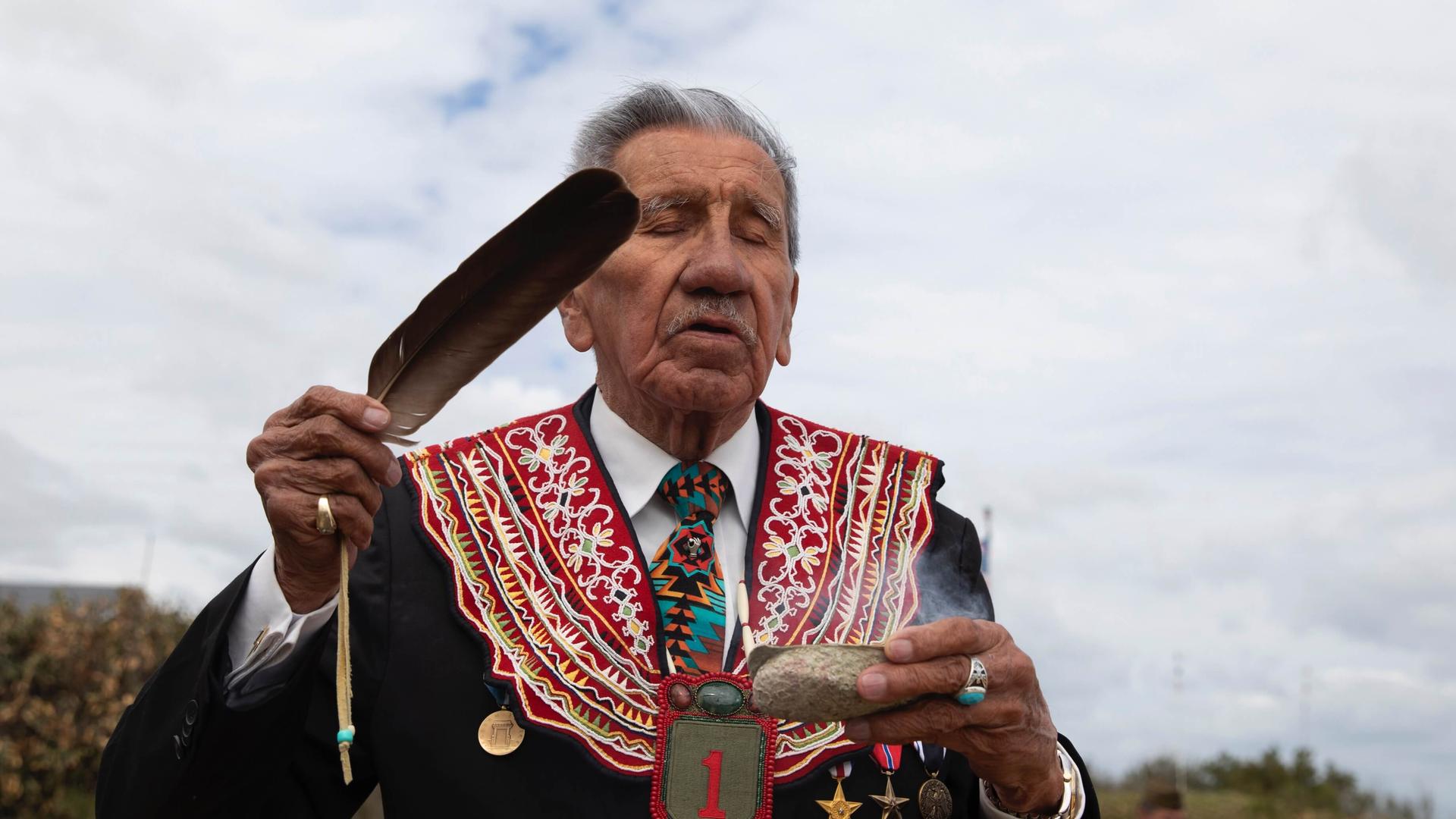COVID-19 is far more lethal among older people than other among other age groups, and for Native peoples in the US, the overall mortality rate is nearly twice that of white Americans. For many Native American groups, losing elders means more than just losing a loved one. It’s also a loss of culture, tradition and language.
Related: COVID-19 stats ‘double-edged sword’ for some Canadian groups
For many tribes, including the Muscogee (Creek) of Oklahoma, less than a thousand people remain who can speak the native language fluently, and they are typically the elders. So, when deciding who should be first in line to receive the vaccine, many tribal communities are prioritizing their elders.
Jason Salsman, a spokesperson for the Muscogee (Creek) nation in Oklahoma, says the cultural loss to COVID-19 has been devastating.
“That is what has hurt our community the most — it’s a knowledge and experience in the spirit that went away with these people that we’ve lost.”
“That is what has hurt our community the most — the fact that it’s not who we lost, it’s what we’ve lost,” Salsman says. “It’s a knowledge and experience in the spirit that went away with these people that we’ve lost. … We are unique, we do have cultural markers that make us different. And I think…that is why this has been a different experience for us, a much more sobering experience for us, than maybe a lot of different groups.”
Related: Under Biden, US Interior Department will undergo major agenda shift
At Muscogee (Creek) Nation, Salsman explains, traditional and ceremonial livelihood centers around 16 remaining ceremonial fires that still exist on ceremonial grounds. This is knowledge directly given to the Muscogee people from their Creator.
“When you talk about ceremonial folks and what they do at the ceremonial grounds, they’re taking traditional medicine, they’re doing stomp dance, they’re singing songs, there’s the ceremonial fire. There’s all of this knowledge out there,” Salsman says. “More importantly, all of that ceremonial knowledge is not put in a textbook because a publisher can manipulate the content of a textbook. We know that better than anybody else. It’s not broadcast out on television. It’s not broadcast out on radio, because guess what? In television, there’s a rights holder somewhere. There’s somebody that has the creative control over those things.”
“The ceremonial and the traditional knowledge are things that are kept at the grounds — oral tradition, oral histories passed from person to person. … [T]hat knowledge is kept inside of those people and because of that, when we lose them, it goes, too.”
“So the ceremonial and the traditional knowledge are things that are kept at the grounds — oral tradition, oral histories passed from person to person,” he continues. “That information, that knowledge is kept inside of those people and because of that, when we lose them, it goes, too.”
Related: Immigrant communities connect with Indigenous products to nurture, heal during pandemic
The Muscogee (Creek) have lost two important figures, among many others, to the coronavirus. One was Dr. Robert Bible, who built and established the college of the Muscogee Creek. He successfully got the college accredited and became its president.
“Mr. Bible was somebody that everyone knew in the Muscogee (Creek) community,” Salsman says. “He was somebody that was a champion for tribal education, but also was a member of the chief’s cabinet as part of the leadership team. … He was a well-loved man and it’s a real shame that he’s not with us anymore because he would love to see all of the dreams he had for the college come to fruition.”
The Muscogee (Creek) Nation also lost Miko Robert Yargee to the virus. Miko is translated as “town king,” or chief of his ceremonial ground, Salsman explains. Yargee was the Miko of the Alabama ceremonial ground.
“He was mild-mannered, and he spoke sparingly but when he spoke, everybody gathered around to listen,” Salsman says. “He was very much a cultural icon in the Muscogee (Creek) Nation. And he was one that would reach out and speak with younger people and let them know, ‘This is why you’re Muscogee. This is why you speak this way, this is why we meet out here. This is what we’re all about.’”
To lose somebody like Miko Yargee is like burning a textbook, Salsman says. Miko appointments are for life and they start at a young age — when they are “almost betrothed” to their position.
“So for him, think about that — he’s over 60 years old,” Salsman says. “So, how many years of tradition? … Knowledge that absolutely can’t be found anywhere else on the earth. I mean, you can scour the globe. And it’s very specific to this area and this culture. So to lose that is devastating.”
For these reasons, the Muscogee (Creek), like other Native American tribes, are putting elders and native speakers first in line for the coronavirus vaccine. They are the “absolute priority,” Salsman says, because language is their “distinct cultural marker.”
“You can go to Mexico, you can go to New Hampshire, you can go to India, and nobody’s speaking Muscogee (Creek) language,” Salsman notes. “They’re speaking it here because they are Muscogee people here. And that’s why we have to preserve that. They need to be able to be here to teach that to our younger ones, to immerse them in the language. …
Who are we if we don’t know how to speak in our own language to one another? We’re not Muscogee (Creek) if we can’t speak,” Salsman says. “And so we’re trying our best to not only convey the seriousness of getting those folks vaccinated, but at the same time the seriousness of what I just said — that if we don’t have a language, we don’t have a people.”
This article is based on an interview by Bobby Bascomb that aired on Living on Earth from PRX.
